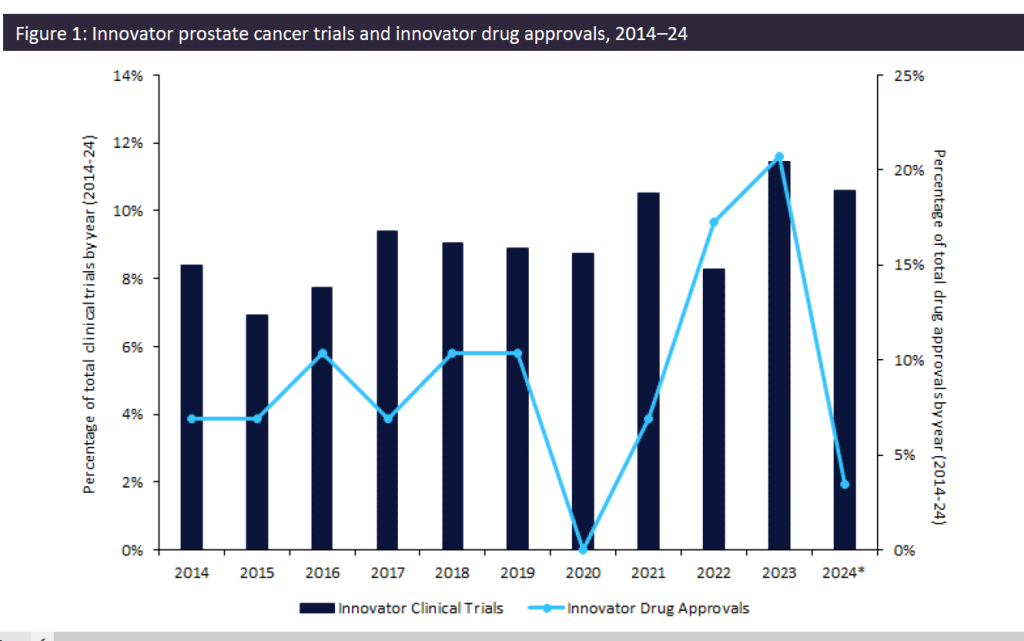The month of November each year is dedicated to raising awareness of health issues affecting men, such as mental health and suicide prevention, prostate cancer and testicular cancer.
Prostate cancer is the fourth most common cancer worldwide and the second most common cancer in men after skin cancer, according to the World Cancer Research Fund International. Fortunately, prostate cancer is one of the most successfully treated types of cancer if caught early, which is why encouraging early screening measures is extremely important — especially as men with early prostate cancer are often asymptomatic, or present generic symptoms that can be caused by other health problems.
Prostate cancer is a major public health burden worldwide and especially within the UK. GlobalData’s epidemiologist forecast that incident cases of prostate cancer in the country are predicted to increase by 5.78% (60,133 cases) from 2024 to 2028. However, it appears that awareness raised by initiatives such as Men’s Health Awareness Month is encouraging men toward screening, as GlobalData’s epidemiologists also forecast that diagnosed prevalent cases are set to increase by
6.3% in the same period. The increased diagnosis will hopefully be supported by a wealth of novel predictive tools. One example is research recently published in JAMA Network Open, showing that two magnetic resonance imaging-based
risk calculators can predict prostate cancer risk among adults in Europe and North America with some accuracy. There is, however, still a long way to go towards the development of an effective predictive screening tool for prostate cancer.
A promising future for diagnosis and treatment
There is therefore a need for effective and innovative screening programmes as well as novel treatments, and attempts at both will likely materialise in the coming years as GlobalData forecasts that the prostate cancer market size is set to increase by
Although there appears to be a slight dip in the number of innovator trials and therapies in 2024, the year is not yet complete and there is time to see these figures recover and possibly surpass previous years (Figure 1). Overall, the data predicts a promising future for the diagnostic and treatment landscape of prostate cancer. Initiatives such as Men’s Health Awareness Month are vital for early detection, which provides the greatest opportunity for potential sufferers to improve their chances of survival and quality of life.

US Tariffs are shifting - will you react or anticipate?
Don’t let policy changes catch you off guard. Stay proactive with real-time data and expert analysis.
By GlobalData
Source: GlobalData, Pharma Intelligence Center (Accessed: November 2024)






